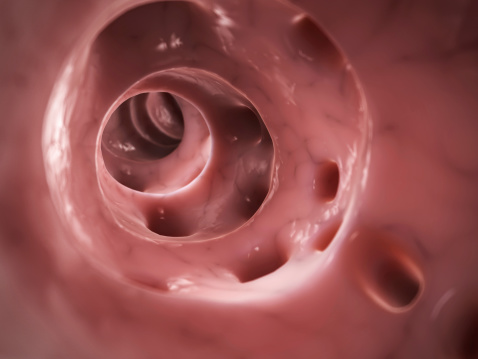
Crohn’s disease is a chronic, inflammatory condition which affects the lower aspect of the small and large bowel. Along with ulcerative colitis, Crohn’s disease is classified as an inflammatory bowel disease.
Some of the symptoms of Crohn’s disease include abdominal pain, diarrhea, fever, weight loss, and loss of appetite. The condition is usually diagnosed in younger people, and it seems much more common in certain ethnic groups, including Caucasians and Jews. There also seems to be a genetic link to developing Crohn’s, as people with Crohn’s in their family are more likely to develop Crohn’s, as well. There is also some evidence that certain dietary factors, such as a high refined carbohydrate intake, can impact the likelihood of contracting this illness. However, despite the various theories regarding the development of Crohn’s disease, it remains an autoimmune disease.
People who suffer from Crohn’s disease have very special nutritional requirements, because they also suffer from malabsorption syndrome, which causes nutritional deficiencies. Crohn’s disease patients also have a higher requirement for certain nutrients, which is often very difficult for them to attain due to low food intake.
The diet and nutritional plan I recommend for Crohn’s disease varies depending upon the individual circumstances, but here are the major things you need to know.
High Fiber
The best diet for this condition is one that has a large amount of fiber. Foods like oatmeal, brown rice, quinoa, cooked vegetables, ground flax seed, whole fruit, legumes, raw nuts, and seeds are beneficial. The fruit and vegetables you eat should be brightly colored—such as berries, citrus, and leafy vegetables—as these varieties contain higher amounts of antioxidants, which can decrease the chronic inflammation associated with Crohn’s disease. The increased intake of raw pineapple is also an excellent idea, as it can improve digestion and also reduce inflammation. I recommend three–four servings of high–fiber foods daily.
Normal Flora
Increasing the amounts of natural, unsweetened yogurt in the diet is helpful, because it repopulates the intestinal tract with high amounts of normal bacteria. The bacteria will help decrease the inflammation and heal the damaged intestinal membranes. Consuming one to two servings of yogurt mixed with raw fruit every day is an excellent way to repopulate your gut and acquire an excellent source of protein.
Healthy Fat
Consuming the right kinds of fats in your diet can be a very important process in managing Crohn’s disease. The best fats to eat are contained within oily fish (salmon, mackerel, and sardines), ground flax seed, and in foods like avocado or extra virgin olive oil. These fats can decrease the inflammation and help heal the damaged intestinal linings, which improves the absorption of nutrients. I recommend consuming one to two servings of healthy fats every day.
Foods to Avoid
If you have Crohn’s disease, there are some foods that you should not eat: they include white flour products, sugar, pasta, baked goods, fruit drinks, soda, fried foods, red meat, deli meats, trans fat, processed foods, fast foods, and any type of junk food.
Try Supplements
Most people who suffer from Crohn’s disease will also have multiple nutrient deficiencies, so they should take additional supplements containing iron; B12; B-complex vitamins; vitamins C, E, and D; and minerals such as zinc, calcium, and magnesium. These should be taken with food, but spread over the day in three equal dosages.
Source:
Murray, M., Encyclopedia of Naturopathic Medicine (Prima Publishing, 1998): 587-601.













